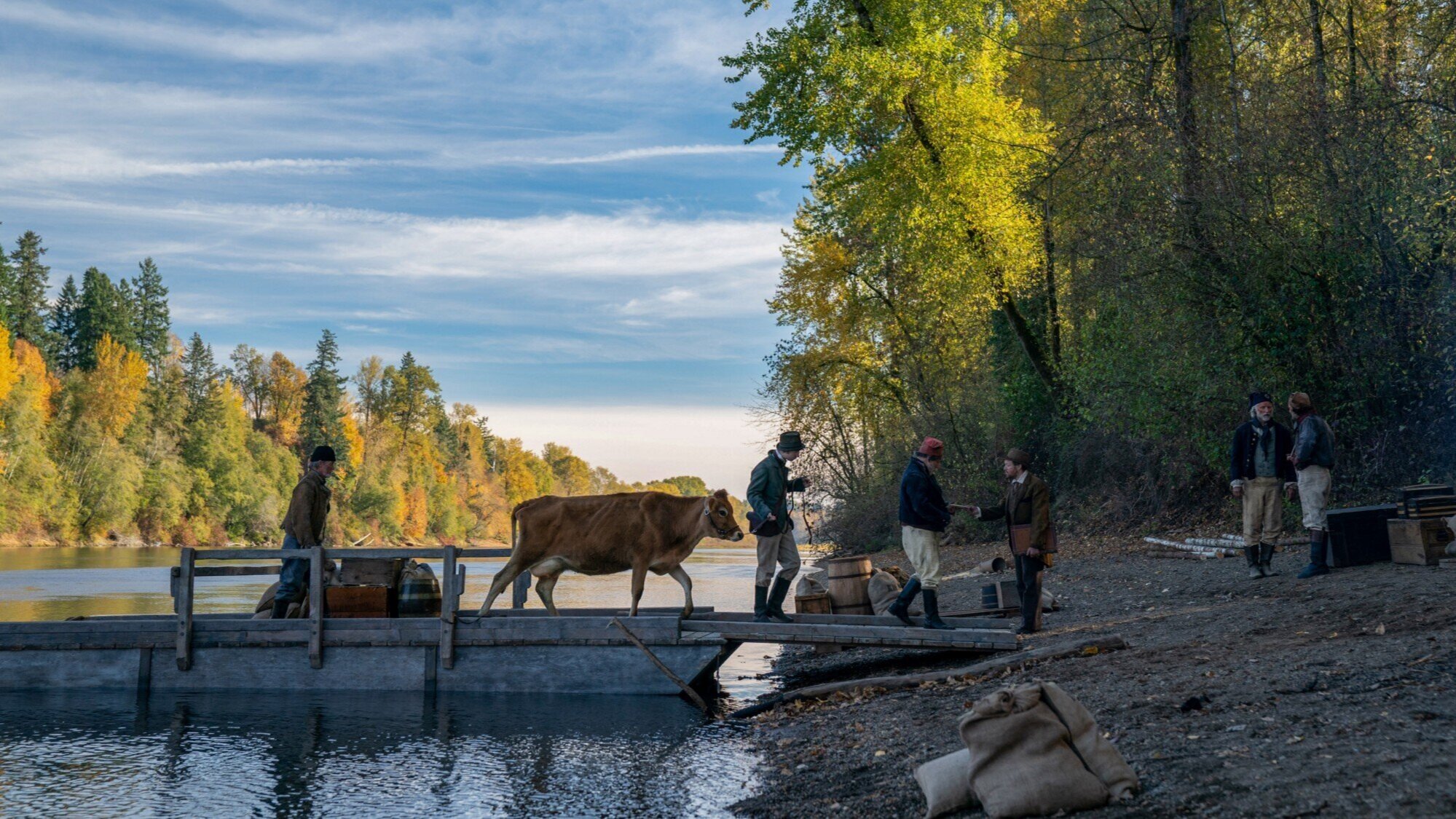First Cow
In Kelly Reichardt’s latest drama, a Chinese immigrant and an accomplished cook join forces in 19th century Oregon.
“The bird a nest, the spider a web, man friendship.” The William Blake quotation prefacing First Cow seeks to communicate the film’s underlying theme: the necessity of human connection. It is a positive and important message, especially for our present moment, which makes it all the more frustrating when it isn’t followed through.
First Cow is the latest endeavour from the writer-director Kelly Reichardt, often lauded as a master of minimalist style and slow-burn drama. Audiences know what to expect from Reichardt now. Gorgeous, if understated, visuals. Methodical and meticulous pacing. A focus on the working class. Make no mistake, consistency in a filmmaker is a good thing. But there is danger in familiarity. None of these aspects are inherently tired, but contextually they create a lack of tension through a sense of predictability.
The main action takes place in the Oregon Territory during the 19th century. A white American fur trapper and a Chinese traveller (played by the consistently under-appreciated John Magaro and the impressive newcomer Orion Lee, respectfully) meet by chance, form a close bond, and hatch a scheme to find their fortune through exploiting a rich neighbour’s dairy cow, touted as the first ever to be seen in the region.
There is potential here for magnetic and powerful storytelling. The pairing of the two men creates opportunity for discussions on race and class, specifically the nature of capitalism and poverty and its inevitable conclusion: how the dynamic between the rich and poor can be subverted, making it uncertain who is actually being exploited. There is a subtle environmental message, specifically regarding the presence (or lack thereof) of natural resources, and mankind’s responsibility to make proper and equitable use of them. There are even teasing hints that the relationship between the two isn’t strictly platonic.
This is, ultimately, the issue. Subtlety is a delicate balancing act. First Cow attempts to tackle so many different issues at once, but never fully commits to exploring any of them. Simply acknowledging social structures isn’t the same as dissecting or examining them. The characters don’t have complexity because their actions and words lack subtext. There is rarely anything happening on screen that doesn’t get verbally explained, either immediately before or after the action itself takes place.
Presentationally, the film is competent. The Oregon frontier is certainly picturesque, although the simplicity of the camera work prevents the space from being explored in a creative way. The film somehow feels too long, despite of only clocking in at two hours. This is in part due to the pacing, but also the reluctance to engage in humour. Once the story proper gets going, it flirts with the idea of becoming a black comedy. There are several absurd and awkward moments ripe for a laugh, but the film refuses to commit fully. It muddies the tone, and the audience is left not knowing if they should be taking the events they are witnessing on screen deadly seriously, or not seriously at all.
‘Lack of commitment’ is the perfect summation. Themes, character, and tone all suffer because Reichardt doesn’t know what to prioritize. It might sound like too harsh a critique, but it comes from a place of love and disappointment. The magic of previous projects like Wendy and Lucy and Certain Women proves that Reichardt is capable of achieving all that she set out to with First Cow. It’s a shame she fell short this go around.
CALEB JOHN CUSHING
Cast: John Magaro, Orion Lee, René Auberjonois, Toby Jones, Ewen Bremner, Scott Shepherd, Gary Farmer, Lily Gladstone, Alia Shawkat, Dylan Smith.
Dir Kelly Reichardt, Pro Neil Kopp, Vincent Savino and Anish Savjani, Screenplay Kelly Reichardt and Jonathan Raymond, based on the novel The Half Life, by Jonathan Raymond, Ph Christopher Blauvelt, Pro Des Anthony Gasparro, Ed Kelly Reichardt, Music William Tyler, Costumes April Napier.
FilmScience/IAC Films-Mubi.
122 mins. USA. 2019. Rel: 28 May 2021. Cert. 12A.


